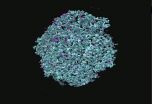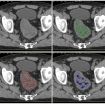A heavier price: How do restaurant surcharges and labeling improve health?
2014-11-11
(Press-News.org) The American obesity epidemic is out of control, and health advocates are working hard to ensure that food labels clearly list calorie content and all unhealthy ingredients. But according to a new study in the Journal of Marketing Research, labeling alone contributes little to healthier eating decisions unless the item also costs more.
"Obesity rates have more than doubled in the past two decades, and large-scale interventions are necessary to dissuade people from consuming unhealthy food," write authors Avni M. Shah (Duke University), James R. Bettman (Duke University), Peter A. Ubel (Duke University), Punam Anand Keller (Dartmouth College), and Julie Edell Britton (Duke University). "The best approach to curtail unhealthy food consumption is to use both an unhealthy label and a surcharge for unhealthy menu items."
Participants in the study were given a menu containing six choices, three of which were unhealthy or high in calories. The menu given to one group marked unhealthy items with an asterisk and explanation, while the menu given to a second group listed a surcharge for these unhealthy choices. Finally, a third group received a menu in which unhealthy items were given both a surcharge and an unhealthy asterisk.
The authors found that women avoided food with negative labeling but seemed undaunted by surcharges; men, on the other hand, avoided surcharges but were unaffected by or even preferred food with negative labeling. Both men and women, however, avoided food if it had negative labeling and a surcharge.
The authors dubbed this combination an "unhealthy surcharge," and noted that according to their study, neither the surcharge nor the unhealthy label reduced customer loyalty, and in fact when an unhealthy label was added, customers gave the restaurant positive marks for caring about its diners.
The authors conclude that being honest about unhealthy items can be a very healthy thing for a company: "We demonstrate that adding an unhealthy label generally increases ratings of how concerned the firm is with the health and well-being of its customers. Increasing customer trust may lead to a number of long term gains, such as higher customer loyalty, greater commitment, and more service usage."
INFORMATION:
Avni M. Shah, James R. Bettman, Peter A. Ubel, Punam Anand Keller, Julie Edell Britton. "Surcharges Plus Unhealthy Labels Reduce Demand for Unhealthy Menu Items." Forthcoming in the Journal of Marketing Research. For more information, contact Avni M. Shah (avni.shah@duke.edu).
ELSE PRESS RELEASES FROM THIS DATE:
2014-11-11
Cities around the world are pouring money into beautiful bicycle paths in hopes of convincing citizens to drive less and bike more. According to a new study in the Journal of Public Policy & Marketing, however, getting people to go from four to two wheels isn't quite that simple.
"Although bicycling is a widely accepted way to travel around cities in Germany, Denmark, and the Netherlands," write authors Marius C. Claudy (University College, Dublin) and Mark Peterson (University of Wyoming), "it is still the most underutilized form of transportation in countries such as ...
2014-11-11
Reserve's borders have erroneously moved 50 kilometers
New species, named after the Luama Katanga Reserve, is now threatened by cattle ranches and forest destruction
NEW YORK (November 11, 2014) - WCS scientists in the Democratic Republic of Congo (DRC) have discovered a new species of plant living in a remote rift valley escarpment that's supposed to be inside of a protected area. But an administrative mapping error puts the reserve's borders some 50 kilometers west of the actual location. Now the new species, along with 900 other plant varieties and 1,400 chimpanzees, ...
2014-11-11
For their study, the researchers were able to fall back on uninterrupted long-term temperature measurements of groundwater flows around the cities of Cologne and Karlsruhe, where the operators of the local waterworks have been measuring the temperature of the groundwater, which is largely uninfluenced by humans, for forty years. This is unique and a rare commodity for the researchers. "For us, the data was a godsend," stresses Peter Bayer, a senior assistant at ETH Zurich's Geological Institute. Even with some intensive research, they would not have been able to find a ...
2014-11-11
Many businesses now offer customers the opportunity to make charitable donations to good causes along with their purchases, but does this really encourage the customer to buy more? According to a new study in the Journal of Marketing, the answer is a firm "Yes."
"The mere presence of a charitable donation opportunity can generate significantly more sales," write authors Michelle Andrews (Temple University), Xueming Luo (Temple University), Zheng Fang (Sichuan University) and Jaakko Aspara (Hanken Swedish School of Economics). "Offering the donation nearly doubled the ...
2014-11-11
When consumers see a company performing good deeds, they often assume that the company's products are healthy. According to a new study in the Journal of Public Policy & Marketing this may be far from true, and the company's socially responsible behavior may be creating a "health halo" over unhealthy foods.
"Research demonstrates that consumers frequently engage in inference making when evaluating food products. These inferences can be highly inaccurate, leading to unintended, unhealthy consumer choices," write authors John Peloza (University of Kentucky), Christine Ye ...
2014-11-11
A novel method of altering a protein in milk to bind with an antiretroviral drug promises to greatly improve treatment for infants and young children suffering from HIV/AIDS, according to a researcher in Penn State's College of Agricultural Sciences.
That's critical because an estimated 3.4 million children are living with HIV/AIDS, the World Health Organization reports, and nine out of 10 of them live in resource-limited countries in sub-Saharan Africa, where effective antiretroviral treatments still are not widely accessible or available. International medical experts ...
2014-11-11
Enterotoxigenic Escherichia coli (ETEC) bacteria are responsible each year for around 400 million cases of diarrhoea and 400,000 deaths in the world's low- and middle-income countries. Children under the age of five are most affected.
ETEC bacteria also cause diarrhoea in nearly one in two travellers to these areas.
Major breakthrough
Researchers at the University of Gothenburg's Sahlgrenska Academy are world leaders in research into ETEC and have now made a major breakthrough in collaboration with colleagues from the Wellcome Trust Sanger Institute in the UK, Karolinska ...
2014-11-11
As football players are learning, a violent blow to the head has the potential to cause mild to severe traumatic brain injury -- physical damage to the brain that can be debilitating, even fatal. The long-term effects run the gamut of human functioning, from trouble communicating to extensive cognitive and behavioral deterioration. To date, there is no effective medical or cognitive treatment for patients with traumatic brain injuries.
But a new study from Tel Aviv University researchers points to an "enriched environment" -- specially enhanced surroundings -- as a promising ...
2014-11-11
Technology developed at the University of Sussex helps hospitals make earlier and more accurate treatment decisions and survival assessments for patients with bowel cancer.
Bowel cancer kills more than 16,000 people a year in the UK, making it the nation's second-most common cause of cancer death (after lung cancer).
A novel medical-imaging technology, TexRAD, which analyses the texture of tumours, has been shown in trials to enable early diagnosis of those bowel-cancer patients not responding to the standard cancer therapy better than other available tumour markers. ...
2014-11-11
Changes to China's drink driving laws are catching the community off guard with more than 70 per cent of people unaware of the blood alcohol limits that could see them face criminal charges, according to new Queensland University of Technology (QUT) research conducted in two Chinese cities.
QUT's Centre for Accident Research & Road Safety - Queensland (CARRS-Q) has partnered with organisations in China to promote road safety and reduce fatalities and injuries, as alcohol-related driving offences are being brought into sharper focus because of the country's rapid motorisation ...
LAST 30 PRESS RELEASES:
[Press-News.org] A heavier price: How do restaurant surcharges and labeling improve health?



